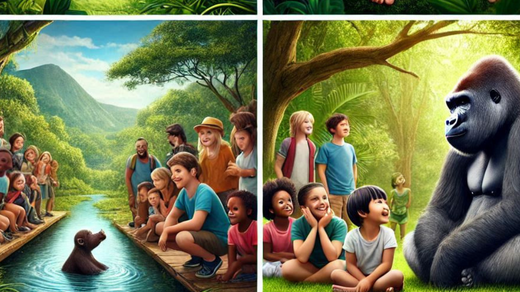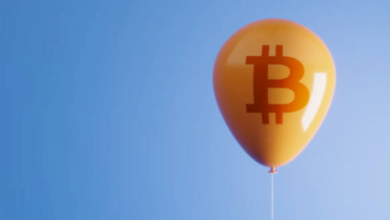Protecting Wildlife: Hafez’s Story as a Turning Point

The Importance of Wildlife Conservation
Wildlife conservation is imperative for maintaining the delicate balance of ecosystems worldwide. The diverse array of species, from majestic elephants to tiny insects, plays a crucial role in ecological processes and the overall health of our planet. By safeguarding wildlife populations and their habitats, we not only preserve biodiversity but also support essential services such as pollination, seed dispersal, and soil health.
Furthermore, wildlife conservation has significant economic benefits that extend beyond environmental protection. Many communities depend on wildlife tourism for their livelihoods, with iconic species drawing in visitors from around the globe. By preserving natural habitats and safeguarding endangered species, we not only ensure sustainable incomes for local residents but also contribute to the overall economic prosperity of regions reliant on ecotourism.
Hafez’s Background and Connection to Wildlife
Hafez’s journey began in tragic circumstances as he was rescued as a baby gorilla from illegal wildlife trafficking at Istanbul Airport. This immediate threat to his survival brought attention to the harsh reality of wildlife smuggling and the critical need for conservation efforts to safeguard vulnerable species like gorillas. Hafez’s rescue not only saved his life but also shed light on the vital role enforcement teams play in combating wildlife crimes and preserving biodiversity.
Challenges Faced by Wildlife
Wildlife face a myriad of challenges in their struggle for survival in today’s world. Human activities such as deforestation, pollution, and poaching have severely impacted their natural habitats, leading to a decline in their populations. Additionally, climate change is altering ecosystems at an unprecedented rate, making it difficult for wildlife to adapt and thrive in their changing environments.
Furthermore, the illegal wildlife trade remains a significant threat to many species, putting them at risk of exploitation and endangerment. Despite conservation efforts, wildlife continue to face the looming danger of extinction due to these persistent challenges. It is crucial for us to address these issues collectively and take action to protect and preserve the diverse array of wildlife species that share our planet.
Hafez’s Journey in Protecting Wildlife
Hafez’s journey in protecting wildlife is a powerful testament to the impact that individuals can have on conservation efforts. From being rescued as a baby gorilla at Istanbul Airport to becoming a symbol of hope and resilience, his story serves as a reminder of the urgency in combatting illegal wildlife trafficking and protecting endangered species.
Through Hafez’s recovery, we witness the intersection of enforcement teams, global awareness campaigns, and rehabilitation initiatives working together to safeguard not just one life, but the delicate balance of biodiversity. His journey sheds light on the harsh realities faced by wildlife due to human activities, inspiring us all to take action and stand up for the protection of our natural world.
Successes in Wildlife Conservation Efforts
Hafez, a shining example of successful wildlife conservation efforts, serves as a beacon of hope for endangered species worldwide. Through Hafez’s story, we witness the impact of dedicated conservationists and rescue teams who work tirelessly to combat illegal wildlife trafficking and provide a second chance for vulnerable animals. The successful rescue and rehabilitation of Hafez not only signify a win for conservation efforts but also shed light on the need for continued vigilance and support in protecting endangered wildlife species.
Furthermore, Hafez’s journey towards recovery showcases the power of collaboration between local communities, government authorities, and conservation organizations in safeguarding wildlife populations. By raising awareness and fostering a sense of responsibility towards wildlife conservation, Hafez’s story inspires individuals worldwide to take action in preserving our natural heritage. The collective success in saving Hafez is a testament to the positive impact that concerted conservation efforts can have on securing a sustainable future for all living beings.
Threats to Wildlife Population
The rapid destruction of natural habitats due to deforestation, urbanization, and industrialization poses a significant threat to wildlife populations globally. As human populations expand and consume more land for agriculture and development, many species are losing their homes and essential resources for survival.
Illegal poaching and trade of wildlife remains a persistent threat to various species, driving many towards the brink of extinction. Whether it is for traditional medicine, exotic pets, or luxury goods, the demand for wildlife products continues to drive the illicit wildlife trade, leading to a devastating impact on wildlife populations worldwide.
The Role of Communities in Wildlife Protection
Communities play a crucial role in the protection of wildlife. Their involvement can significantly impact the conservation efforts of endangered species and their habitats. Through education, awareness campaigns, and active participation, communities can contribute to creating a sustainable environment where wildlife can thrive.
By engaging with local communities, conservation organizations can foster a sense of responsibility and stewardship towards wildlife and the natural world. When individuals are empowered to take action and make a positive impact, the collective efforts can lead to long-term conservation success. Empowering communities to become advocates for wildlife protection creates a network of support that is essential for safeguarding biodiversity for future generations.
Hafez’s Impact on Wildlife Conservation
Hafez’s remarkable journey from a victim of illegal wildlife trafficking to a beacon of hope underscores the impact one individual can have on wildlife conservation. His story serves as a powerful reminder of the dire consequences of wildlife crime and the critical need for concerted efforts to protect endangered species like gorillas.
Through Hafez’s rehabilitation and successful integration back into the wild, his impact on wildlife conservation has been profound. His resilience and survival against all odds inspire conservationists and communities worldwide to work together in safeguarding our precious natural heritage. As an ambassador for his species, Hafez continues to raise awareness about the threats facing wildlife and the urgent need for conservation measures to ensure a sustainable future for all living beings.
Future of Wildlife Conservation
The future of wildlife conservation is at a critical juncture as human activities continue to threaten the delicate balance of ecosystems. With habitats diminishing at an alarming rate and species facing extinction, the need for concerted efforts to protect wildlife has never been greater. The escalating impacts of climate change, deforestation, poaching, and pollution further compound the challenges faced in safeguarding the diversity of life on our planet.
Efforts must be intensified to promote sustainable practices, foster environmental education, and advocate for stronger conservation policies on both local and international levels. Collaborative actions involving governments, organizations, communities, and individuals are essential in mitigating the risks faced by wildlife populations. By working together towards a common goal of preserving biodiversity and ecosystems, we can strive towards a future where wildlife thrives in harmony with human development.
How You Can Get Involved in Protecting Wildlife
To get involved in protecting wildlife, consider supporting organizations dedicated to conservation efforts. You can volunteer your time at local wildlife sanctuaries or participate in community clean-up events to help preserve natural habitats. Additionally, educating yourself and others about the importance of wildlife conservation through workshops, seminars, and social media can raise awareness and inspire action.
Another way to make a difference is by practicing sustainable habits in your daily life. Reduce, reuse, and recycle to minimize waste that can harm wildlife and their habitats. Making environmentally conscious choices such as supporting ethical wildlife tourism and avoiding products made from endangered species can also contribute to safeguarding our planet’s biodiversity.



